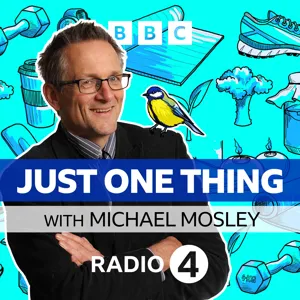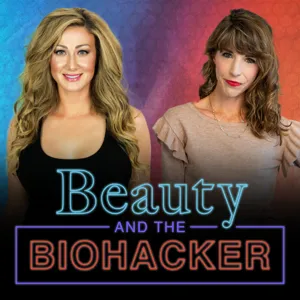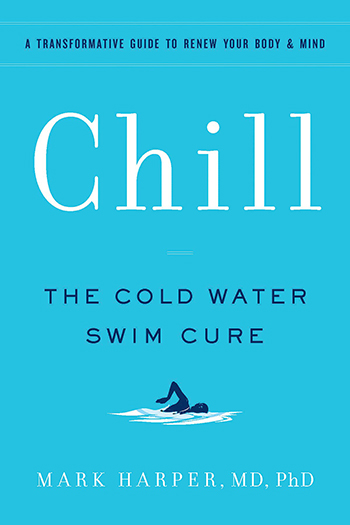Podcast Summary
Embracing the Cold: A Simple and Effective Way to Boost Health and Well-Being: Cold therapy, such as cold water swimming, can boost mood, increase energy levels, reduce inflammation, improve blood sugar response, and potentially protect against dementia. Incorporate cold therapy into your daily routine through cold showers or ice packs.
Embracing the cold can have numerous benefits for our health and well-being. From boosting mood and increasing energy levels to reducing inflammation and improving blood sugar response, cold therapy is gaining popularity, particularly in the form of cold water swimming. This simple, safe, and practical practice, which has seen a significant increase in popularity in recent years, can offer both immediate and long-term health benefits. Furthermore, recent research suggests that cold water swimming may even help protect against dementia by increasing the production of a protein linked to brain health. So, instead of shunning the cold, consider inviting it in and reaping the rewards. For those who prefer to stay warm, there are other ways to incorporate cold therapy into your daily routine, such as taking cold showers or applying ice packs to specific areas. Stay tuned to this BBC Radio 4 podcast series, "Cold Therapy with Dr. Michael Mosley," as we delve deeper into the science behind the cold and explore the many ways it can improve our health and well-being.
Cold water swimming: A natural way to improve mood and well-being: Cold water swimming may boost mood, increase brain blood flow, manage pain, and potentially improve blood sugar control and insulin sensitivity. Studies suggest it could be an effective and natural way to enhance overall well-being.
Cold water swimming, as supported by various studies and anecdotal evidence, may have numerous health benefits including improved mood and well-being, increased brain blood flow to the mood control area, better pain management, and even potential improvements in blood sugar control and insulin sensitivity for specific groups. A study on a woman with major depressive disorder and anxiety showed significant progress after starting a weekly cold water swimming program, leading researchers to investigate further. The 2018 study published in the British Medical Journal reported that after 10 weeks, cold water swimmers experienced a significant boost in mood and increased well-being. Furthermore, a study published in the Journal of Psychology and Psychotherapy: Integrative Approach found an increase in brain blood flow in the mood control area after spending just 5 minutes in cool water. These findings suggest that cold water swimming may be an effective and natural way to improve mood and overall well-being. However, more research is needed to fully understand the potential benefits and limitations of cold water swimming for various populations.
Cold water swimming triggers the cold shock response: The cold shock response is an uncontrollable reaction to cold water immersion, increasing heart rate, blood pressure, and breathing, with potential mood-boosting benefits after
Cold water swimming triggers a response called the cold shock response, which initiates various physiological and chemical changes in the body. During this response, which lasts for several minutes, the body tries to maintain its deep core temperature by increasing heart rate, blood pressure, and blood flow to the core. This results in rapid breathing, increased stress hormone levels, and a shift in blood supply to the core. The cold shock response is an uncontrollable reaction and should be met with relaxation and breathing, not breath holding. Once the response passes, the swimmer can start to experience potential mood-boosting benefits due to the release of various stress chemicals. It's important to note that the full understanding of these benefits is still being researched, but the initial response to cold water immersion is a crucial part of the overall experience.
Experience the benefits of cold water swimming: Cold water swimming reduces stress, improves mood, and leads to physiological adaptations. Repeated immersions make it easier to tolerate the cold and improve overall health and well-being.
Cold water swimming offers numerous benefits for both the body and mind. The initial shock of entering cold water triggers a response that can lead to reduced stress, improved mood, and even physiological adaptations like decreased heart rate and breathing volume. This response is thought to be due to a combination of physiological, psychological, and social factors. Repeated immersions in cold water lead to long-term adaptations, making it easier to tolerate the cold and reducing the severity of the cold shock response. Even taking a break from cold water swimming and resuming it later can result in lingering benefits. Research is ongoing to understand the exact mechanisms behind these effects, including the role of certain proteins. Overall, cold water swimming is a simple yet effective way to improve overall health and well-being.
Discovering a protein called RBM 3 that could potentially protect the brain from neurodegenerative conditions through cold exposure: Early research suggests that a cold shock protein called RBM 3, found in higher levels in cold water swimmers, may help prevent Alzheimer's disease. However, more studies are needed before cold water swimming can be claimed as a cure.
Researchers have discovered a protein called RBM 3, which is a cold shock protein, that goes up in the brain and blood when mammals are cooled. This protein has shown promise in curing mouse Alzheimer's disease when introduced into mice who don't produce enough of it naturally. Human studies have shown that only cold water swimmers have higher levels of RBM 3, suggesting that being cold could potentially protect the brain from neurodegenerative conditions. However, it's important to note that this is still in the early stages of research and cold water swimming is not yet being claimed as a cure for Alzheimer's disease. If you're interested in trying cold water swimming, it's recommended to start gradually and not in the middle of winter.
Cold water swimming: Risks and benefits: Cold water swimming offers potential health benefits but comes with risks. Seek medical advice, join a group, and take precautions to minimize risks. Benefits include mood boosts, improved metabolism, and reduced risk of respiratory infections.
Cold water swimming, while offering potential health benefits, comes with risks and is not suitable for everyone. The cold shock response and potential for hypothermia are serious concerns, especially for those with underlying medical conditions. It's essential to seek medical advice before attempting cold water swimming and to take necessary precautions, such as joining a swimming group, swimming during warmer months, making yourself visible, and ensuring you're over the cold shock response before starting. Cold water swimming can lead to mood boosts, improved metabolism, and reduced risk of respiratory infections, but these benefits come with careful consideration and preparation. As a reminder, this information was shared in the context of a podcast episode on cold therapy. Stay tuned for more on the impact of a cooler bedroom on sleep and other fascinating topics on The Infinite Monkey Cage.
Thoughtful Gift-Giving on a Budget: Consider using services like Celebrations Passport for free shipping and rewards on thoughtful gifts, or platforms like Quince for high-end items at discounted prices.
There are various ways to make special occasions more memorable, even when on a budget. Robin Inge discussed the importance of thoughtful gift-giving, emphasizing the convenience of Celebrations Passport from 1-800-Flowers.com, which offers free shipping on thousands of gifts and rewards for frequent buyers. The discussion also introduced Quince, a platform that offers high-end goods at discounted prices while ensuring ethical and responsible manufacturing. The astronauts and octopuses mentioned in the conversation were just fun additions to the conversation and not directly related to the takeaway. Overall, the conversation emphasized the importance of giving thoughtful gifts and the availability of resources to make gift-giving more accessible and affordable.







